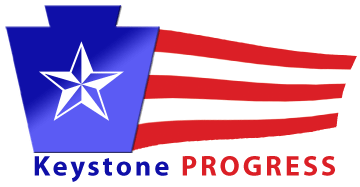WASHINGTON, Jan. 14 /PRNewswire/ -- Establishing a national single-payer style healthcare reform system would provide a major stimulus for the U.S. economy by creating 2.6 million new jobs, and infusing $317 billion in new business and public revenues, with another $100 billion in wages into the U.S. economy, according to the findings of a groundbreaking study released today. It may be viewed at www.CalNurses.org.
The number of jobs created by a single-payer system, expanding and upgrading Medicare to cover everyone, parallels almost exactly the total job loss in 2008.
"These dramatic new findings document for the first time that a single-payer system could not only solve our healthcare crisis, but also substantially contribute to putting America back to work and assisting the economic recovery," said Geri Jenkins, RN, co-president of the National Nurses Organizing Committee/California Nurses Association, which sponsored the study.
"Through direct and supplemental expenditures, healthcare is already a uniquely dominant force in the U.S. economy," said Don DeMoro, lead author of the study and director of the Institute for Health and Socio-Economic Policy, the NNOC/CNA research arm.
"However, so much more is possible. If we were to expand our present Medicare system to cover all Americans, the economic stimulus alone would create an immense engine that would help drive our national economy for decades to come," DeMoro said.
Expanding Medicare to include the uninsured, and these on Medicaid or employer-sponsored health plans, and expanding coverage for those with limited Medicare, would have the following immediate impacts:
Create 2,613,495 million new permanent good-paying jobs (slightly exceeding the number of jobs lost in 2008)
Boost the economy with $317 billion in increased business and public revenues
Add $100 billion in employee compensation
Infuse public budgets with $44 billion in new tax revenues
Further, moving to the new system comes with an unexpectedly low price tag, given the economic benefits and the far-reaching consequences of genuine healthcare reform, DeMoro noted.
Healthcare for all far less than the Wall Street bailouts
Adding all Americans to an expanded Medicare could be achieved for $63 billion beyond the current $2.1 trillion in direct healthcare spending. The $63 billion is six times less than the federal bailout for CitiGroup, and less than half the federal bailout for AIG. Solely expanding Medicare to cover the 47 million uninsured Americans (as of 2006 data on which the study is based) could be accomplished for $44 billion.
The IHSP projections build from an econometric model of the current face of healthcare - applying economic analysis to a wide array of publicly available data from Medicare, the Bureau of Labor Statistics, Bureau of Economic Analysis, and other sources.
It is the first known study to provide an econometric analysis of the economic benefits of healthcare to the overall economy, showing how changes in direct healthcare delivery affect all other significant sectors touched by healthcare, and how sweeping healthcare reform can help drive the nation's economic recovery.
Healthcare presently accounts for $2.105 trillion in direct expenditures. But healthcare spreads far beyond doctor's offices and hospitals. Adding in healthcare business purchases of services or supplies and spending by workers, the total impact of healthcare in the economy mushrooms to nearly $6 trillion.
Overall, every direct healthcare dollar creates nearly three additional dollars in the U.S. economy. Incurrent form, healthcare:
Generates 45 million jobs, directly and in other industries.
Accounts for 10.5 percent of all U.S. jobs and 12.1 percent of all U.S. wages.
Totals 9.2 percent of the nation's Gross National Product.
Contributes about 25 percent of all federal tax revenues. Federal, state, and local taxes from the healthcare sector in 2006 added up to $824 billion.
All those numbers would rise dramatically through comprehensive healthcare reform. But a single-payer system would produce the biggest increase in jobs and wages. The reason, DeMoro said, is that "the broadest economic benefits directly accrue from the actual delivery and provision of healthcare, not the purchase of insurance."
Medicare for all has numerous other benefits, of course, noted Jenkins, from a streamlined system with tens of billions less in private insurance administrative waste, guaranteed choice of physician and hospital, no loss of coverage when unemployed, and no one denied coverage due to age or health status.
"Only a single-payer, expanded Medicare-for-all approach ends the current disgraceful practice of insurance companies refusing to pay for medical treatment or engaging in rampant price gouging that discourages patients from going to the doctor, seeing specialists, or getting diagnostic procedures in a timely manner," said Jenkins.
The IHSP has conducted research for members of Congress and state legislatures as well as NNOC/CNA, and received international renown for research studies on cost and charges in the hospital industry, the pharmaceutical industry, hospital staffing, and other healthcare policy.
Robert Fountain, a frequent economics consultant for the California Public Employees Retirement System (Cal-PERS), served as a consultant on the study.
SOURCE National Nurses Organizing Committee

1 comment:
Yes, a single-payer system would save Pennsylvania $$$$. Instead of looking at tax increases, our legislators at every level should be looking at passage of HB 1660 & SB 300. Just to give you one example, the City of Erie School District with approximately 12,000 students would save $9 million per year. Want to get a calculator to calculate the savings that your family, your business, your local municipality or school district would receive with this legislation? Just download forms from www.healthcare4allpa.org
Post a Comment